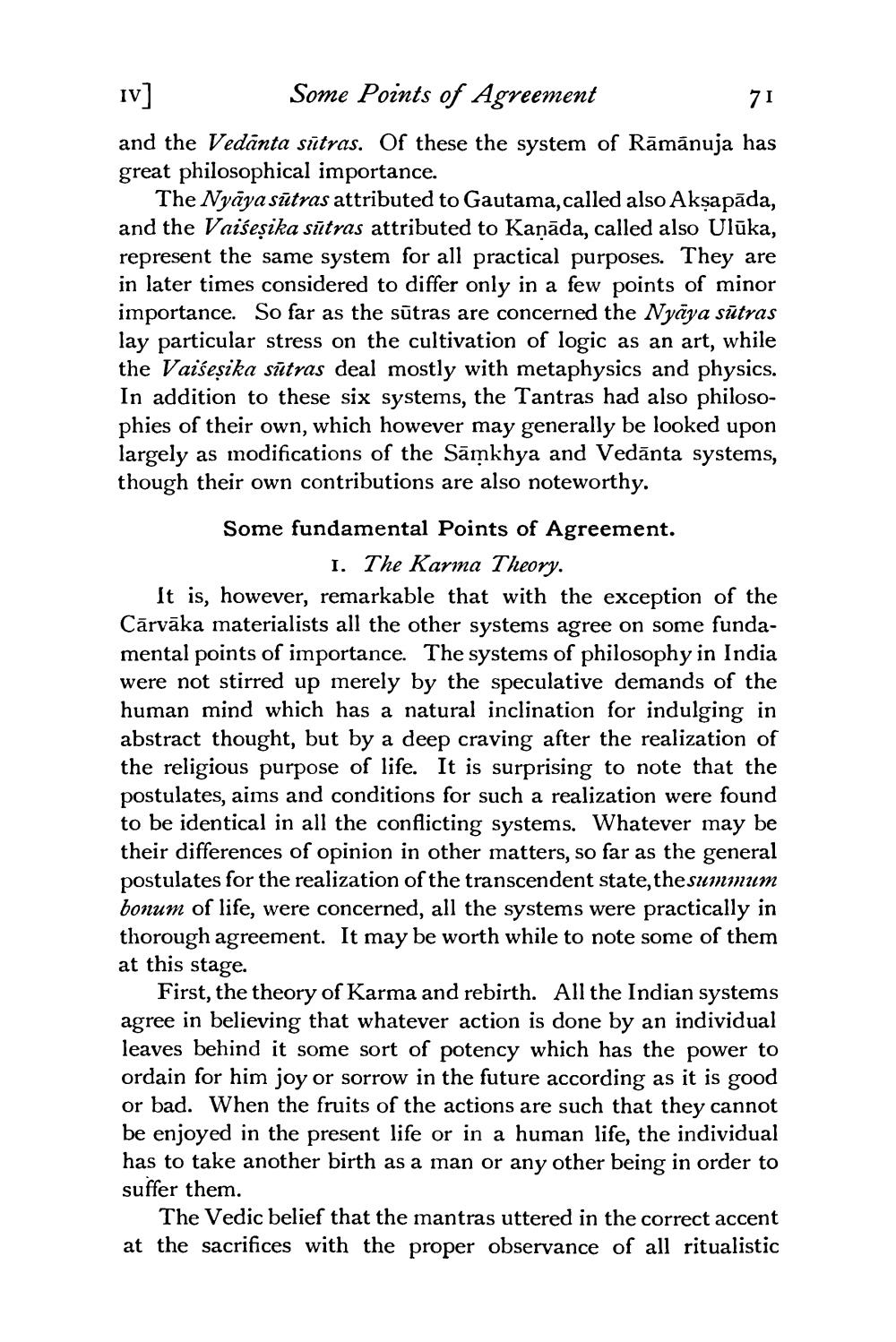________________
IV]
Some Points of Agreement
71 and the Vedānta sūtras. Of these the system of Rāmānuja has great philosophical importance.
The Nyāya sūtras attributed to Gautama, called also Akşapāda, and the Vaiseșika sūtras attributed to Kanāda, called also Ulūka, represent the same system for all practical purposes. They are in later times considered to differ only in a few points of minor importance. So far as the sūtras are concerned the Nyāya sūtras lay particular stress on the cultivation of logic as an art, while the Vaiseșika sūtras deal mostly with metaphysics and physics. In addition to these six systems, the Tantras had also philosophies of their own, which however may generally be looked upon largely as modifications of the Sāmkhya and Vedānta systems, though their own contributions are also noteworthy. Some fundamental Points of Agreement.
1. The Karma Theory. It is, however, remarkable that with the exception of the Cārvāka materialists all the other systems agree on some fundamental points of importance. The systems of philosophy in India were not stirred up merely by the speculative demands of the human mind which has a natural inclination for indulging in abstract thought, but by a deep craving after the realization of the religious purpose of life. It is surprising to note that the postulates, aims and conditions for such a realization were found to be identical in all the conflicting systems. Whatever may be their differences of opinion in other matters, so far as the general postulates for the realization of the transcendent state, the suminum bonum of life, were concerned, all the systems were practically in thorough agreement. It may be worth while to note some of them at this stage.
First, the theory of Karma and rebirth. All the Indian systems agree in believing that whatever action is done by an individual leaves behind it some sort of potency which has the power to ordain for him joy or sorrow in the future according as it is good or bad. When the fruits of the actions are such that they cannot be enjoyed in the present life or in a human life, the individual has to take another birth as a man or any other being in order to suffer them.
The Vedic belief that the mantras uttered in the correct accent at the sacrifices with the proper observance of all ritualistic




